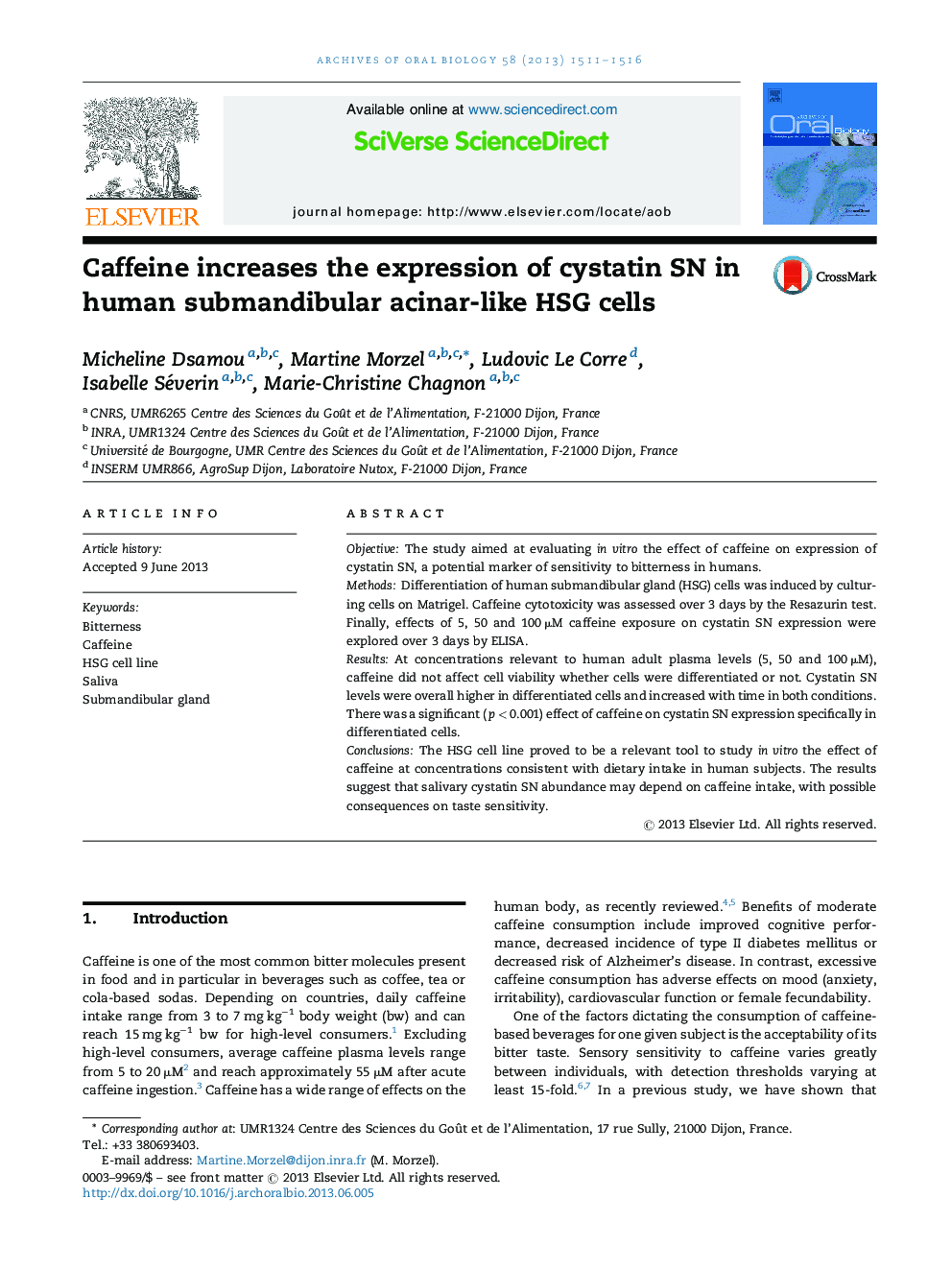| Article ID | Journal | Published Year | Pages | File Type |
|---|---|---|---|---|
| 6051774 | Archives of Oral Biology | 2013 | 6 Pages |
ObjectiveThe study aimed at evaluating in vitro the effect of caffeine on expression of cystatin SN, a potential marker of sensitivity to bitterness in humans.MethodsDifferentiation of human submandibular gland (HSG) cells was induced by culturing cells on Matrigel. Caffeine cytotoxicity was assessed over 3 days by the Resazurin test. Finally, effects of 5, 50 and 100 μM caffeine exposure on cystatin SN expression were explored over 3 days by ELISA.ResultsAt concentrations relevant to human adult plasma levels (5, 50 and 100 μM), caffeine did not affect cell viability whether cells were differentiated or not. Cystatin SN levels were overall higher in differentiated cells and increased with time in both conditions. There was a significant (p < 0.001) effect of caffeine on cystatin SN expression specifically in differentiated cells.ConclusionsThe HSG cell line proved to be a relevant tool to study in vitro the effect of caffeine at concentrations consistent with dietary intake in human subjects. The results suggest that salivary cystatin SN abundance may depend on caffeine intake, with possible consequences on taste sensitivity.
